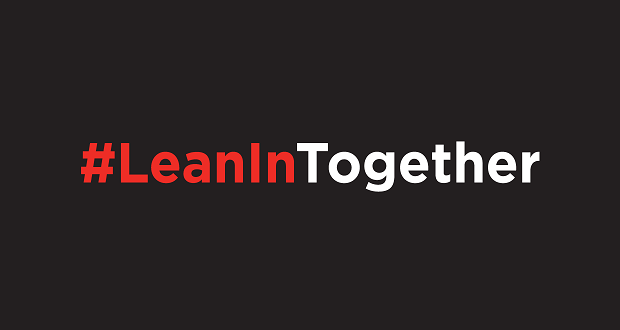
“We hold ourselves back in ways both big and small, by lacking self-confidence, by not raising our hands, and by pulling back when we should be leaning in, and the result is that ‘men still run the world’.” –Sheryl Sandberg, Lean In
Sheryl Sandberg, COO of Facebook reignited the debate over women’s lack of progress in the business world last March with the release of her bestselling book Lean In. More recently her organization LeanIn.Org initiated a partnership with the NBA and WNBA to encourage men to support equality for women. Sandberg was interviewed last night on ABC Nightly News by David Muir where she talked about the NBA produced PSA highlighting her campaign, “#LeanInTogether,” featuring stars from the NBA and WNBA. Miami Heat’s Dwayne Wade says in the PSA: “I’m leaning in for my wife, my mother, my grandmother.” Elena Delle Donne, who plays for the WNBA’s Chicago Sky, offers: “My brother would always pick me above of his friends to be on his basketball teams.” Sandberg said in the interview:
“Equality is good for men, too…when men support women at work, they outperform their peers. When men are 50/50 partners at home, their relationships are stronger, and they have more sex. And when they’re active fathers, their kids are healthier, happier, more successful … I tell men, ‘Don’t buy flowers, do laundry.’”
In the book Lean In, Sandberg asserts that both men and women need to address the issue. Urging women to be more assertive, speak up for themselves, be aware of stereotype threats; and men to check their unconscious biases and change behaviors that exclude women and hold them back from reach their full potential.
She says that men attribute their success to their own skills, while women more often say they succeeded because of luck and good mentors. Sandberg says that ambition is not seen as a positive trait in a woman, as it is in a man. I have the privilege of coaching a young woman engineer who was recently told that she is “too ambitious” in a performance review because she asked for additional responsibilities.
We might assume that younger women are more apt to be assertive and not deterred by historical gender limitations in thinking and behavior. It does not seem so. Sandberg is a Gen Xer and I am sure many of the women she is observing at Facebook are either X’ers or Y’s. She tells the story of how she was not going to negotiate her salary when she was offered the job at Facebook and her brother-in-law was amazed that she would even think about taking the first offer. Studies show that women, including younger women are in general less likely than their male counterparts to negotiate their salaries.
I applaud Sandberg’s efforts. It is too easy and a cop out to blame women for the systemic sexism that persists. Much of what I read today about the solution is for women to change…“lean in”, “learn to be assertive but not aggressive”, “don’t speak first in a meeting”…and the list goes on of the things that women need to do. (Not that I necessarily agree with such advice). As Sandberg is pointing out, the solution lies in shared responsibility. Women do need to know their market value and make sure they are getting what they are worth. Women need to be self-aware. What is my negotiation style? Is it valued in this organizational culture? What adjustments would be comfortable for me to make without losing who I am? Men also need to be self-aware, acknowledge their biases, and be advocates for outstanding women who may not get their due because of historical, systemic inequities.
I am optimistic and hopeful that the #LeanInTogether campaign will make us all more aware of that women’s progress equals progress for us all.

















